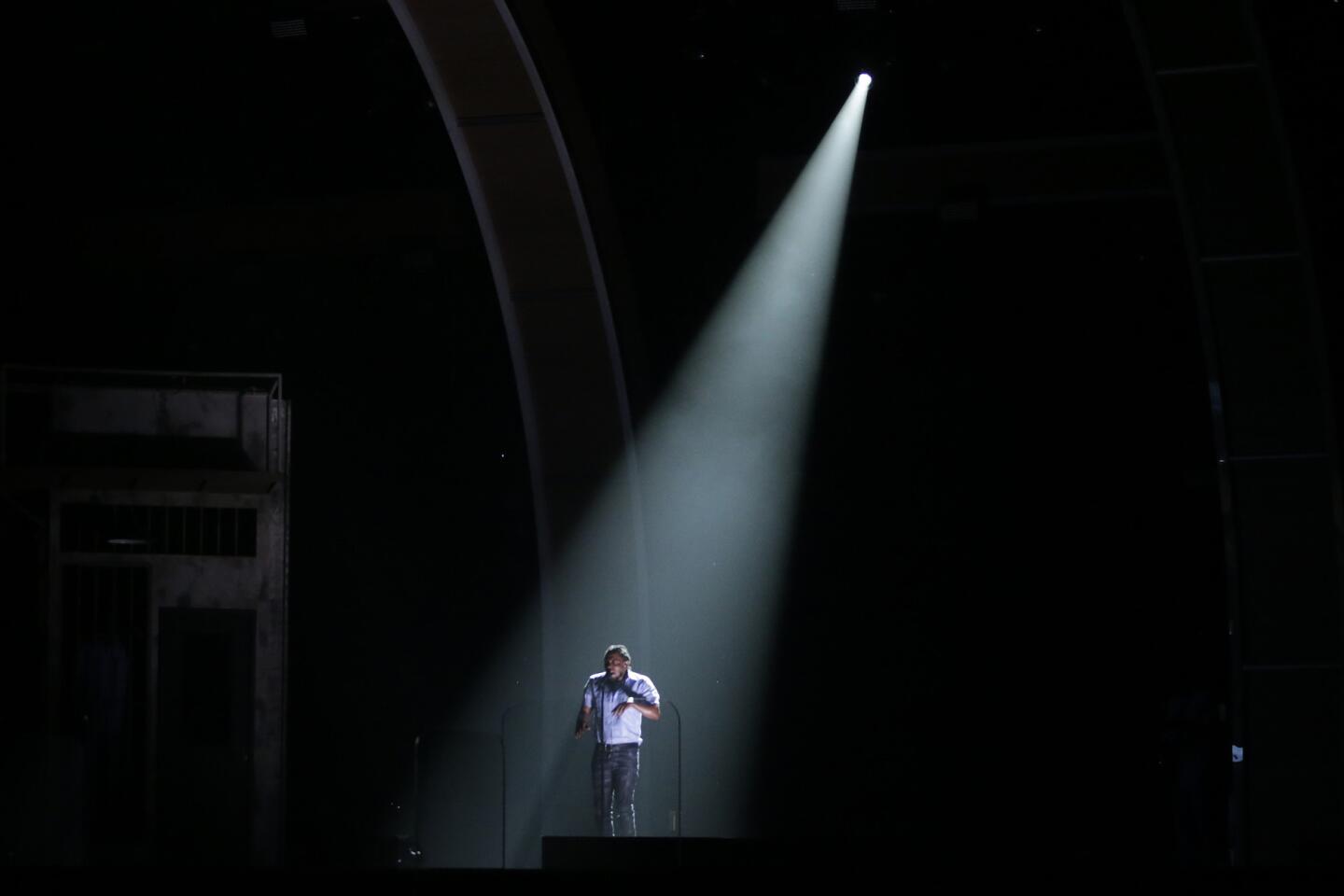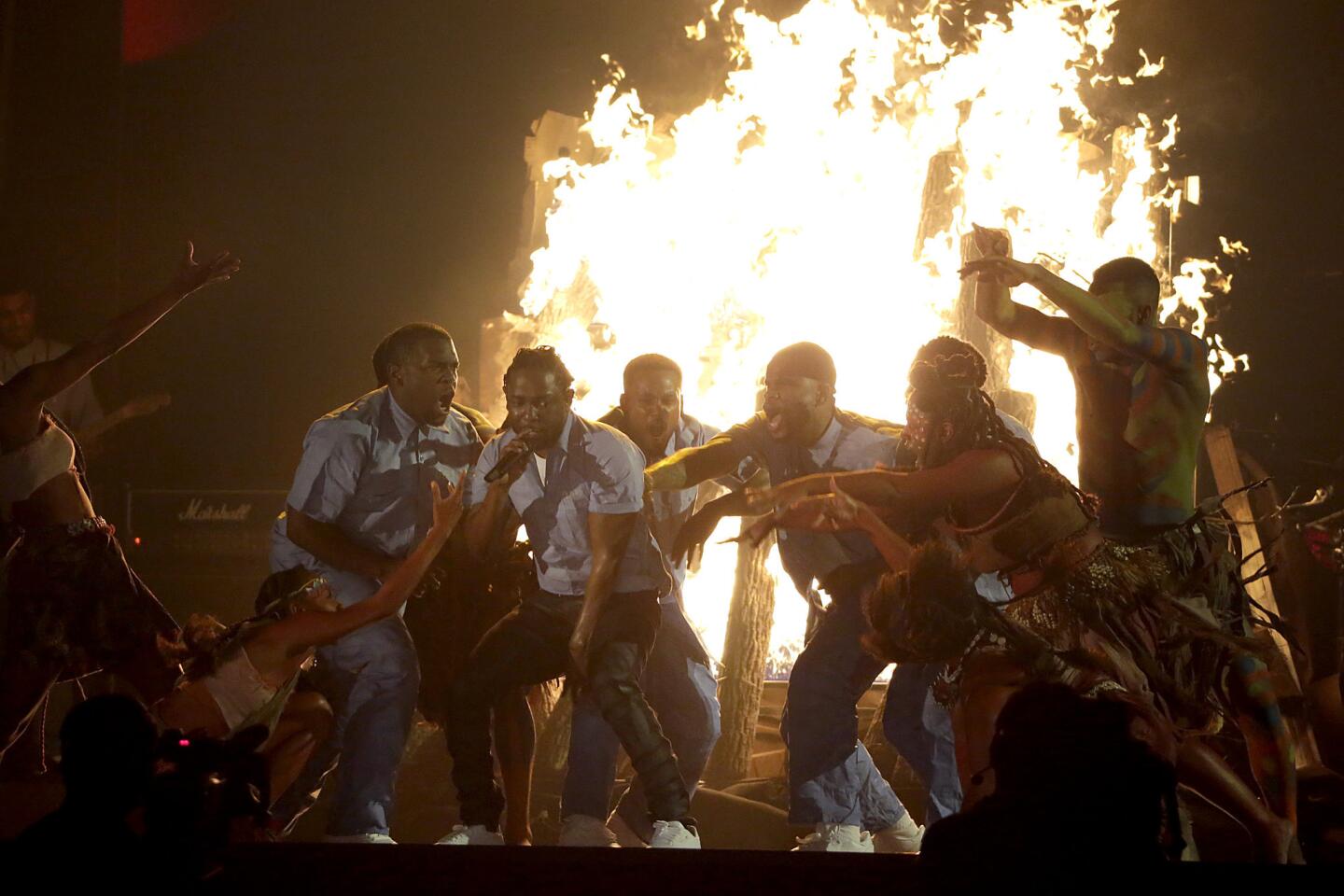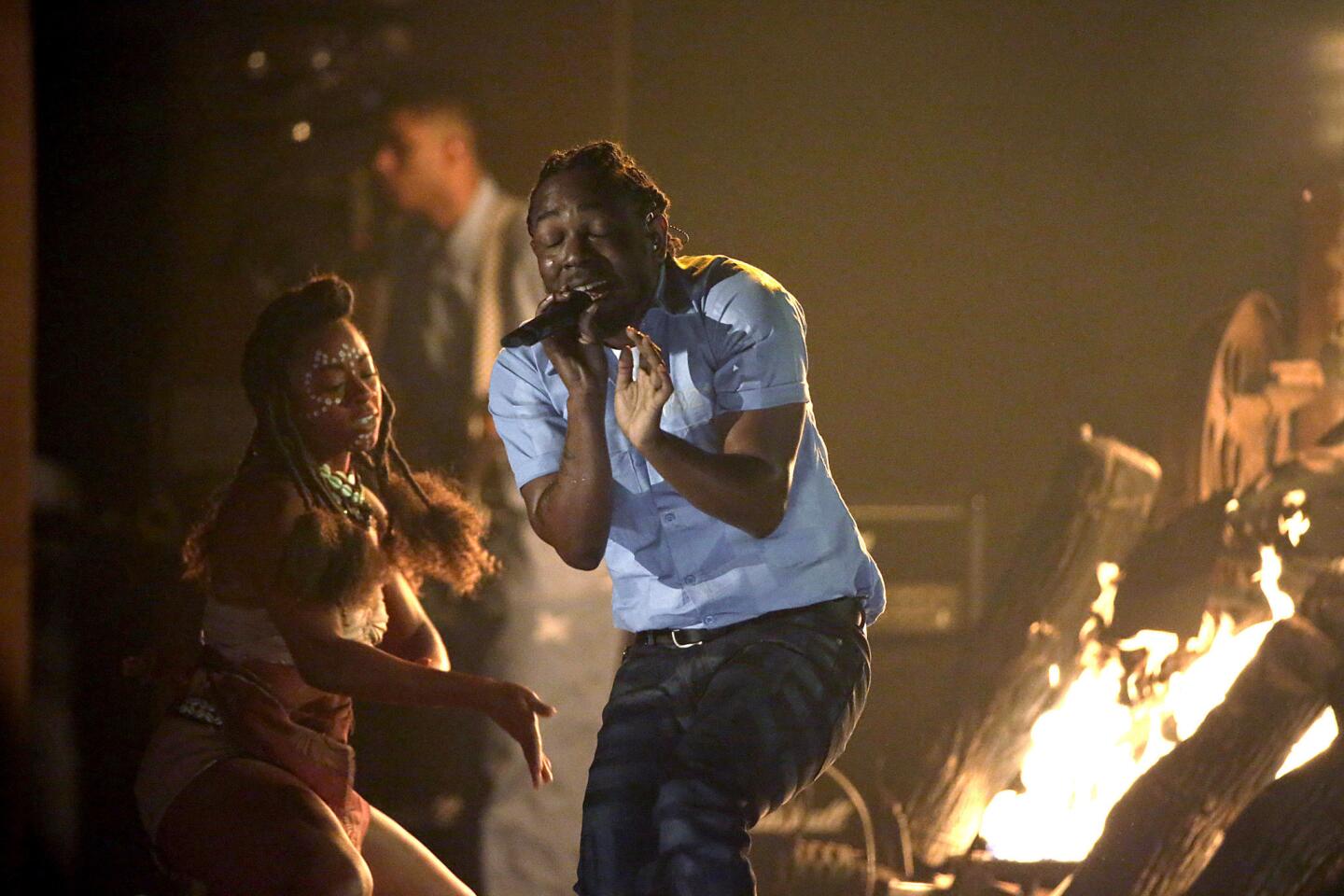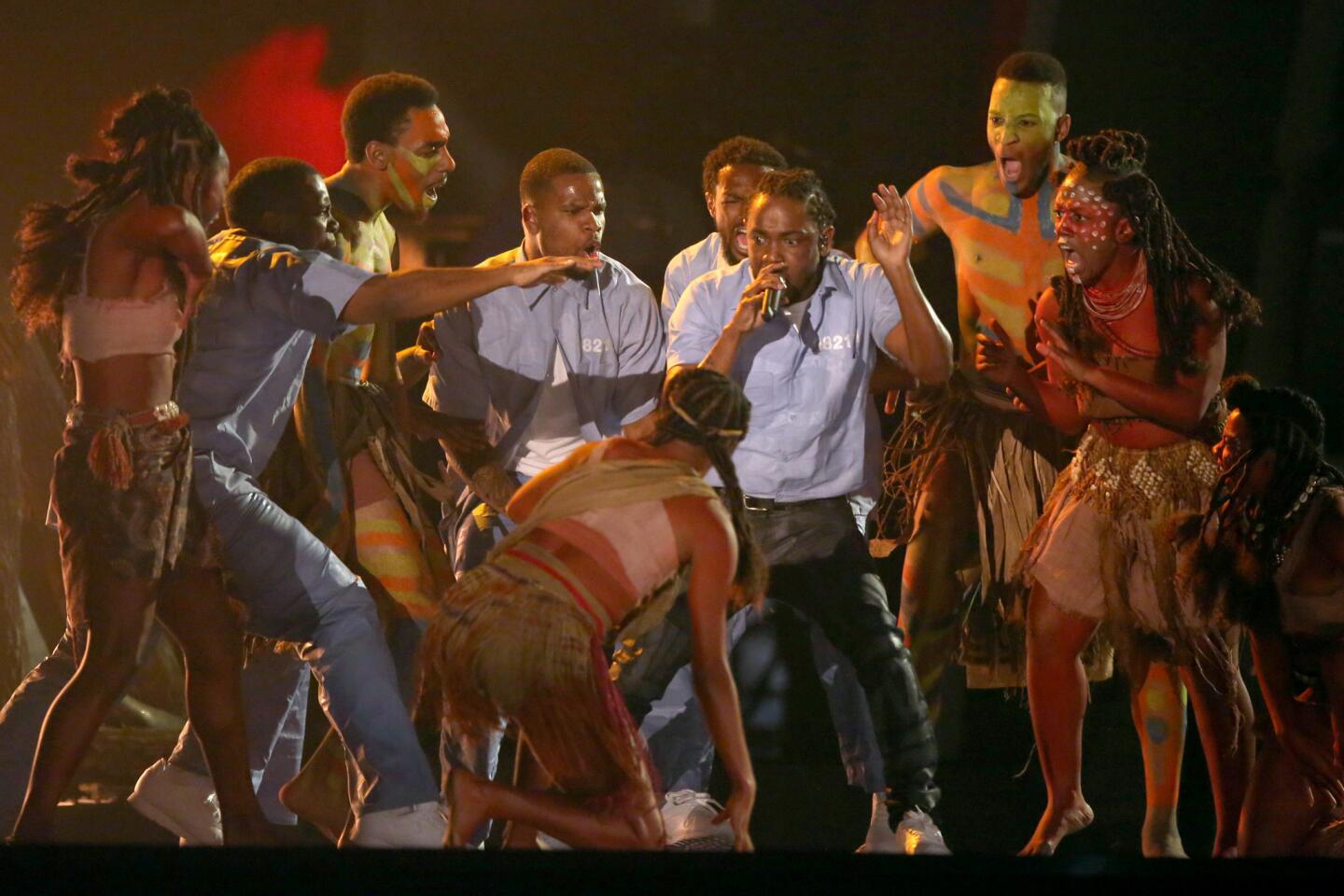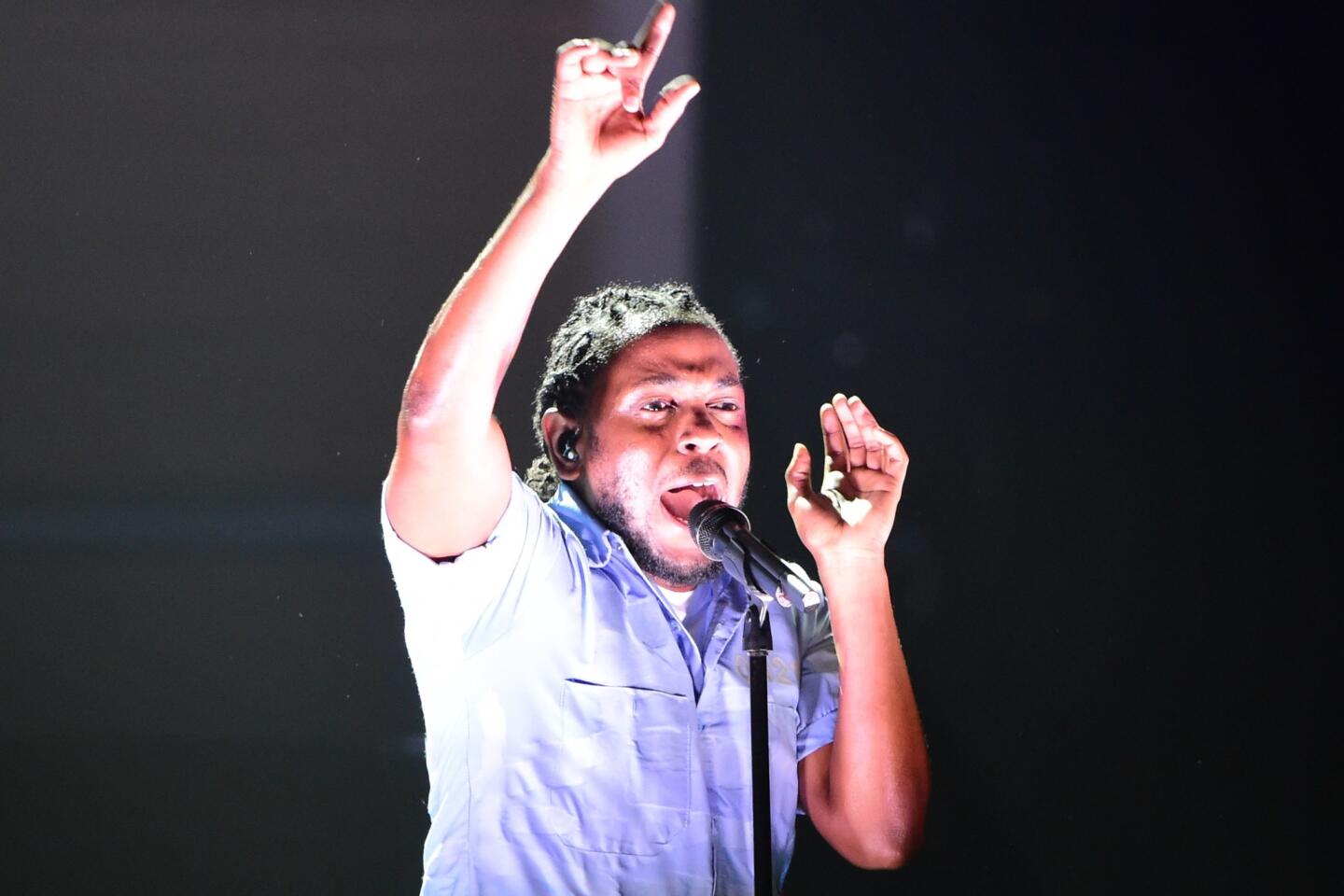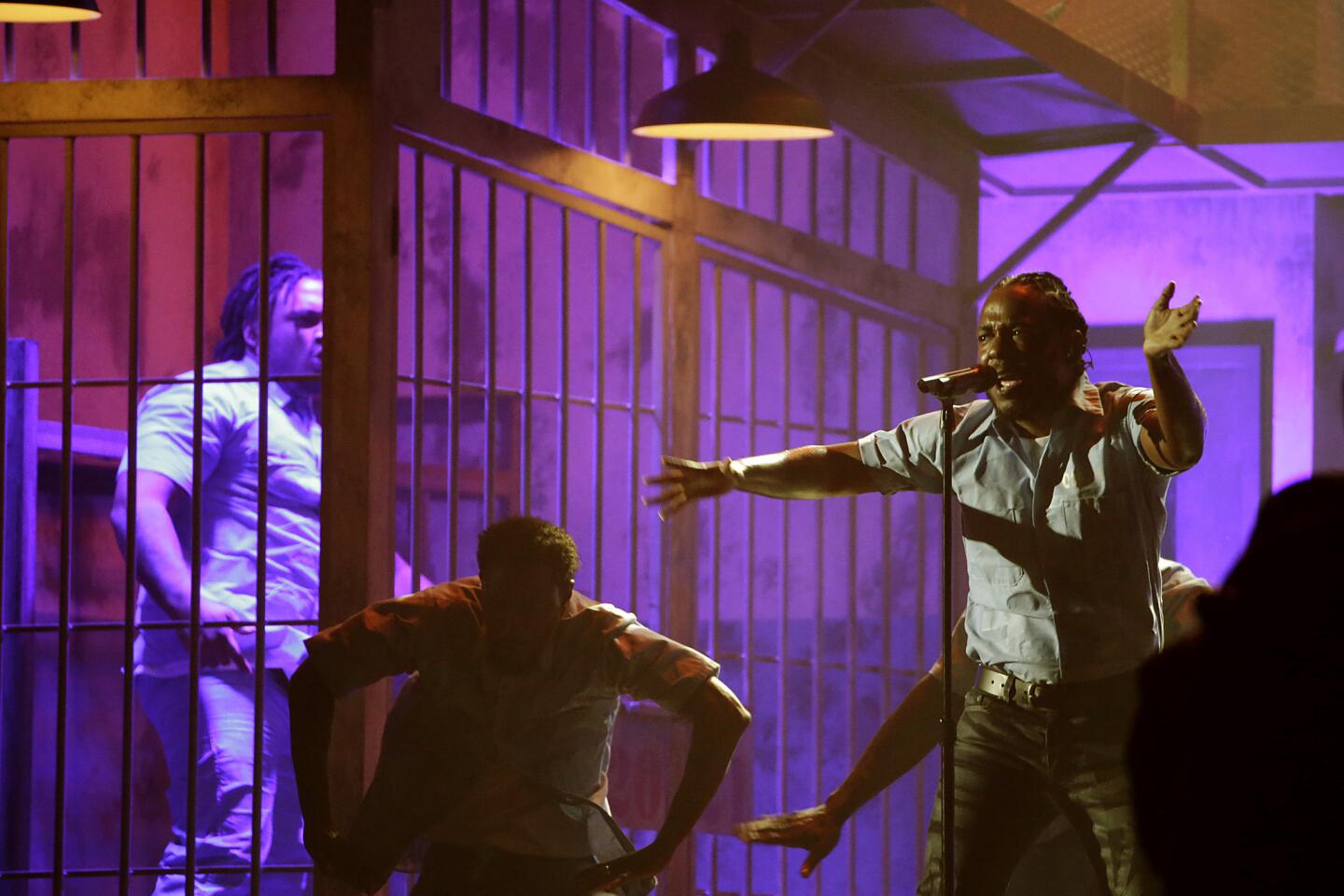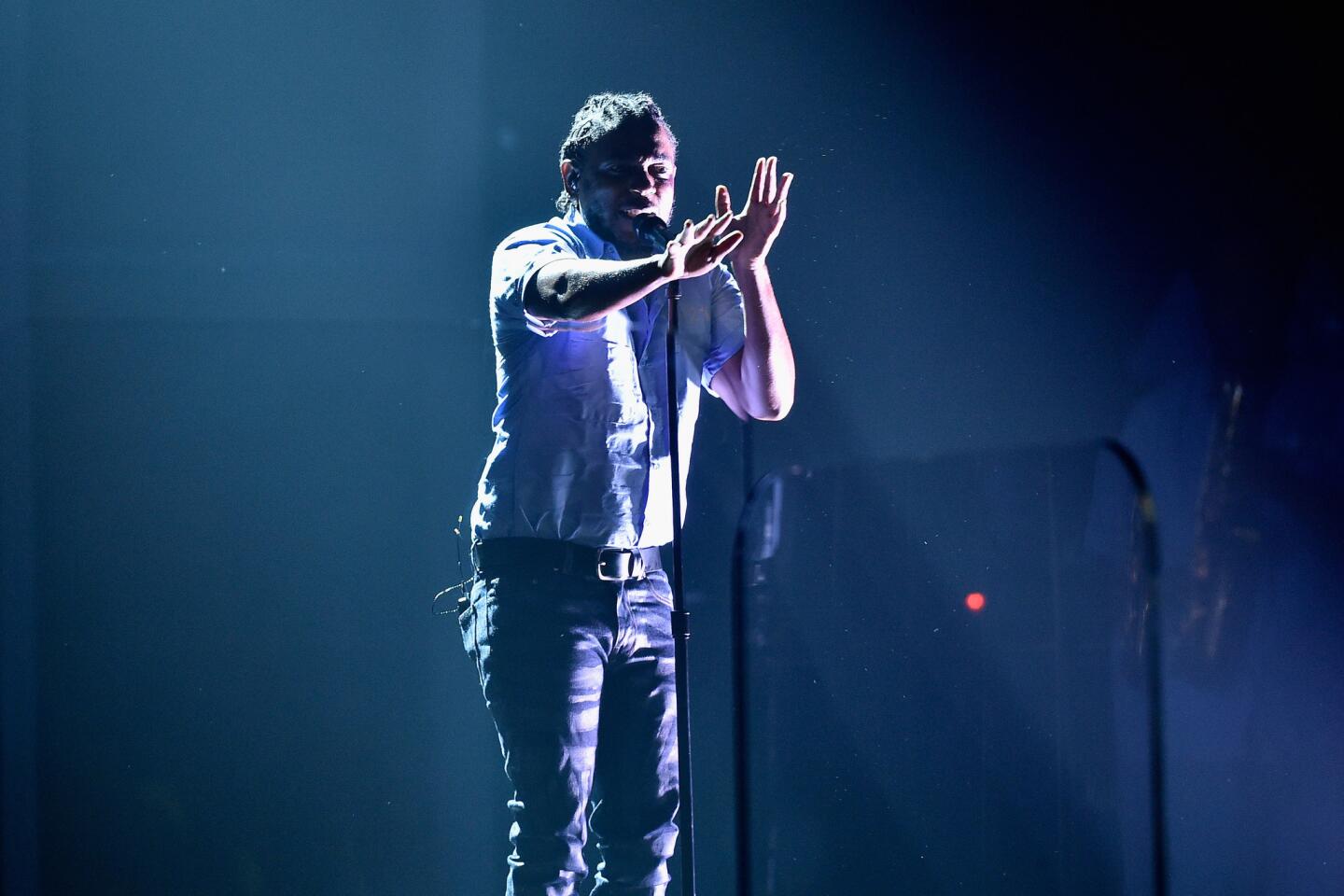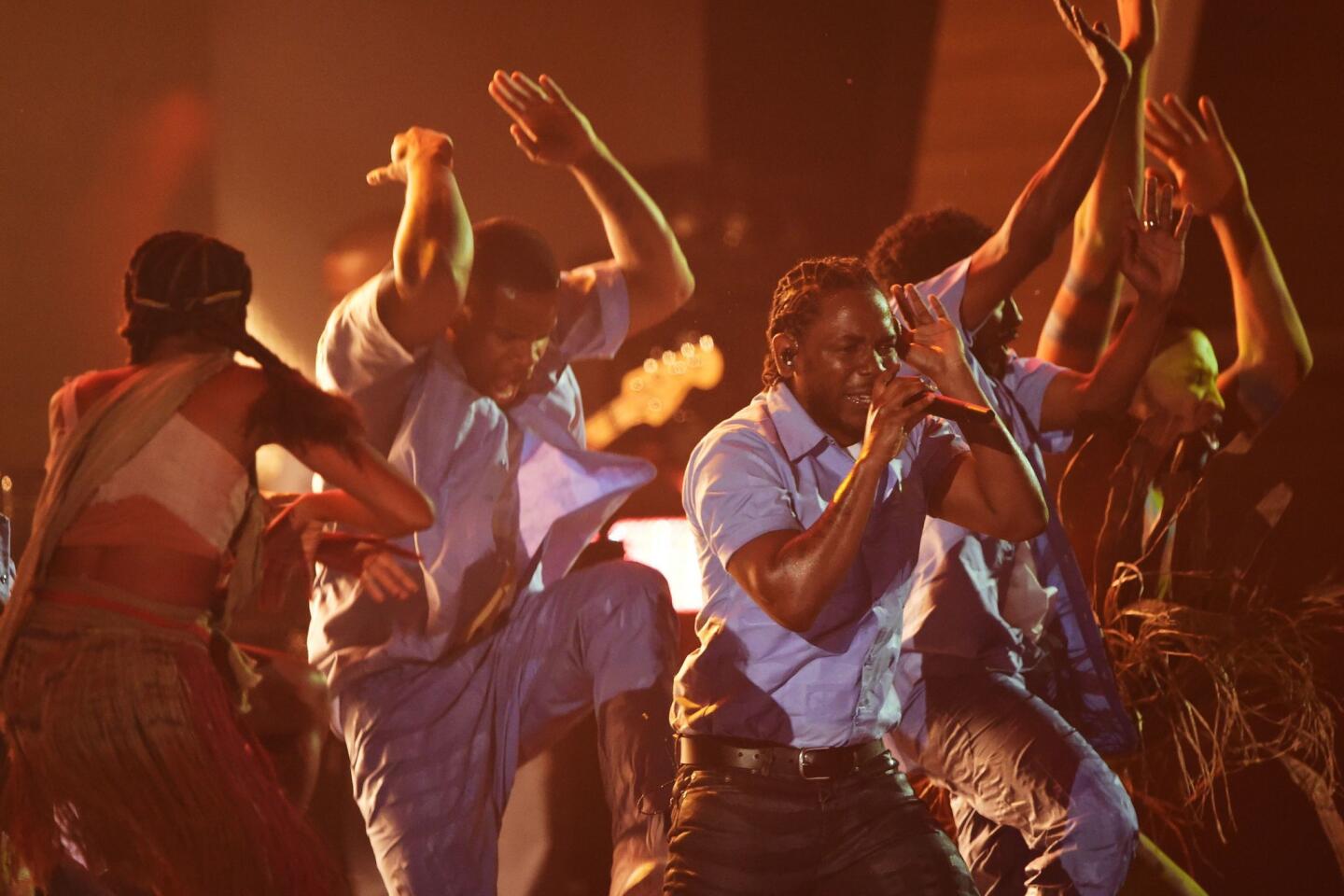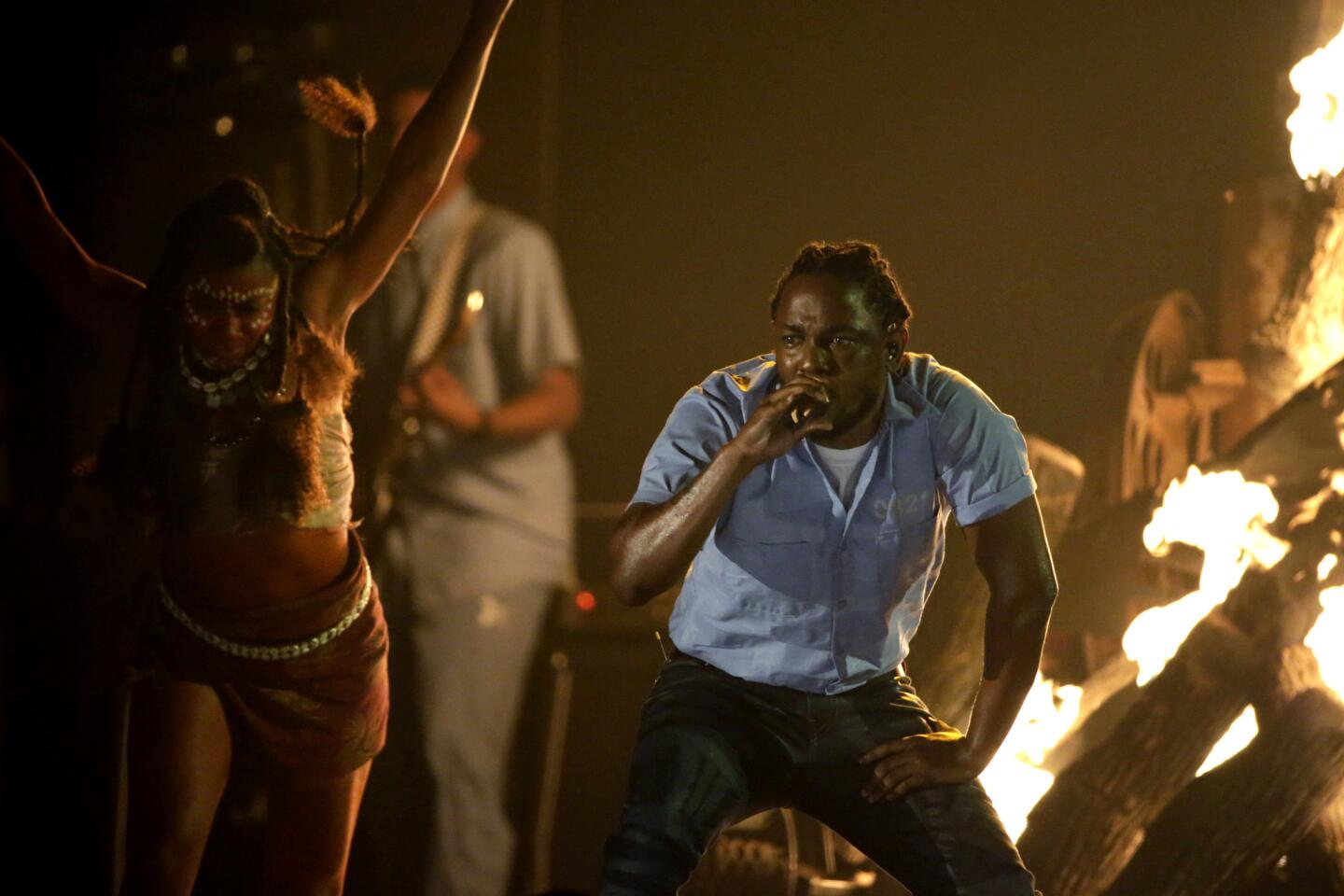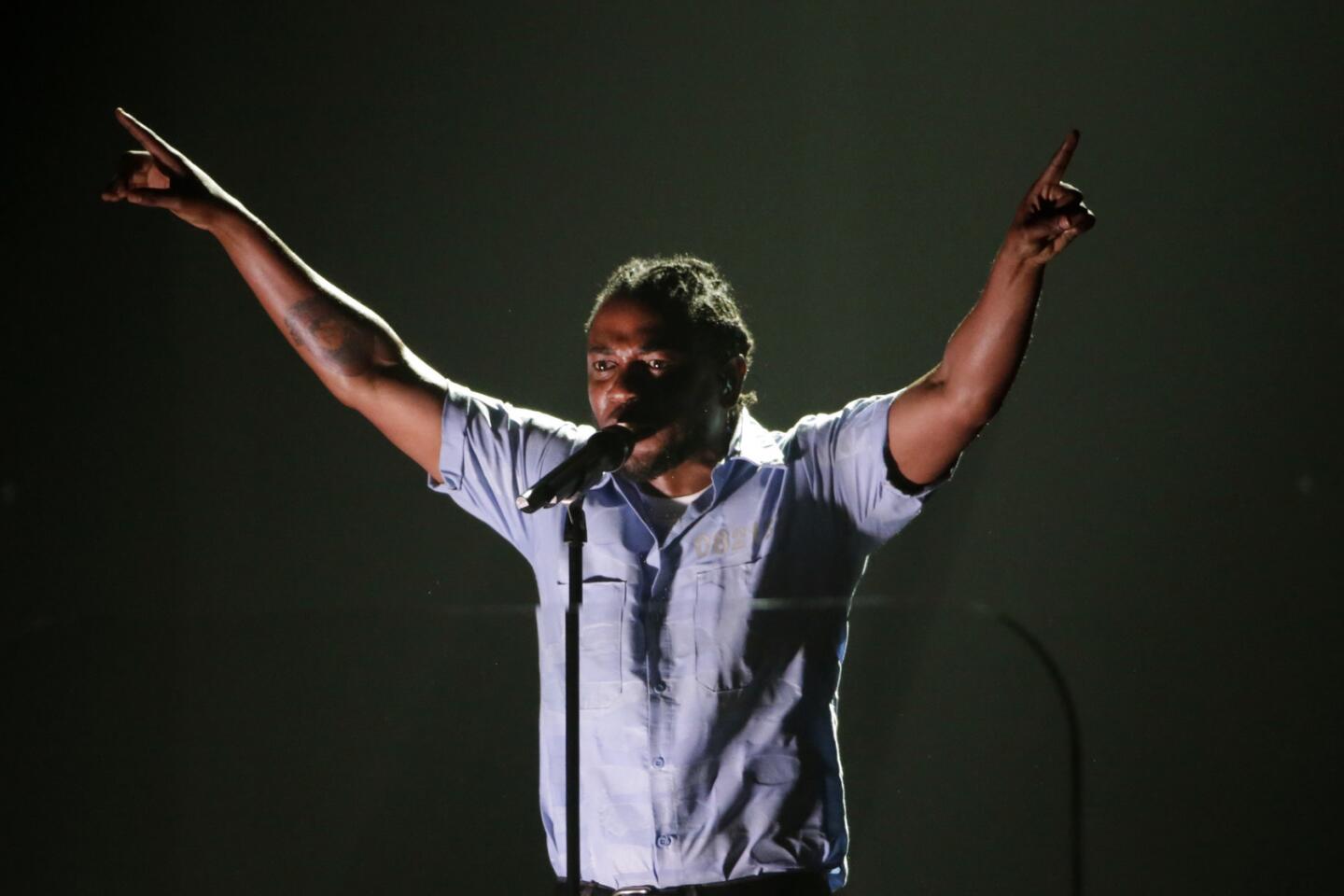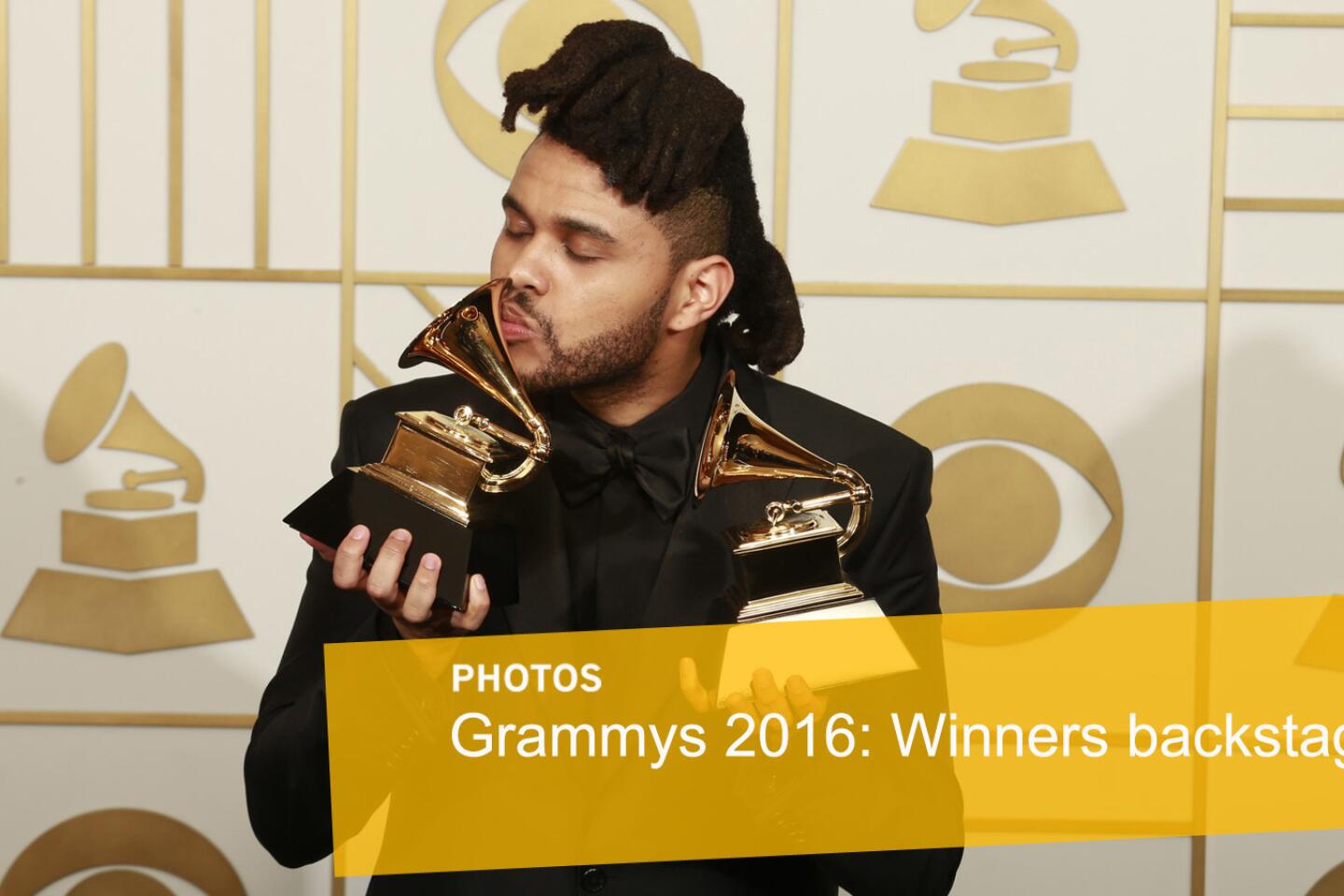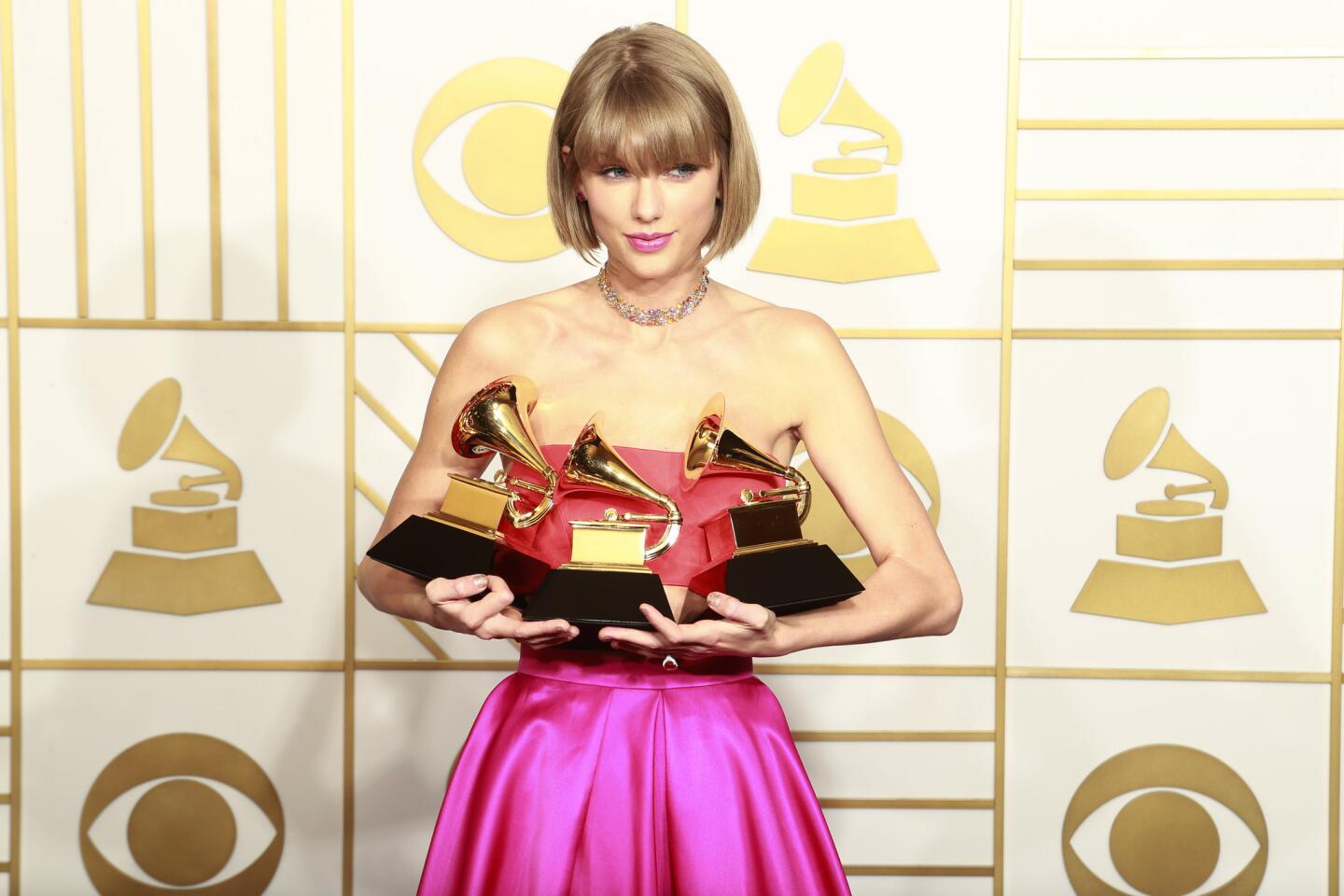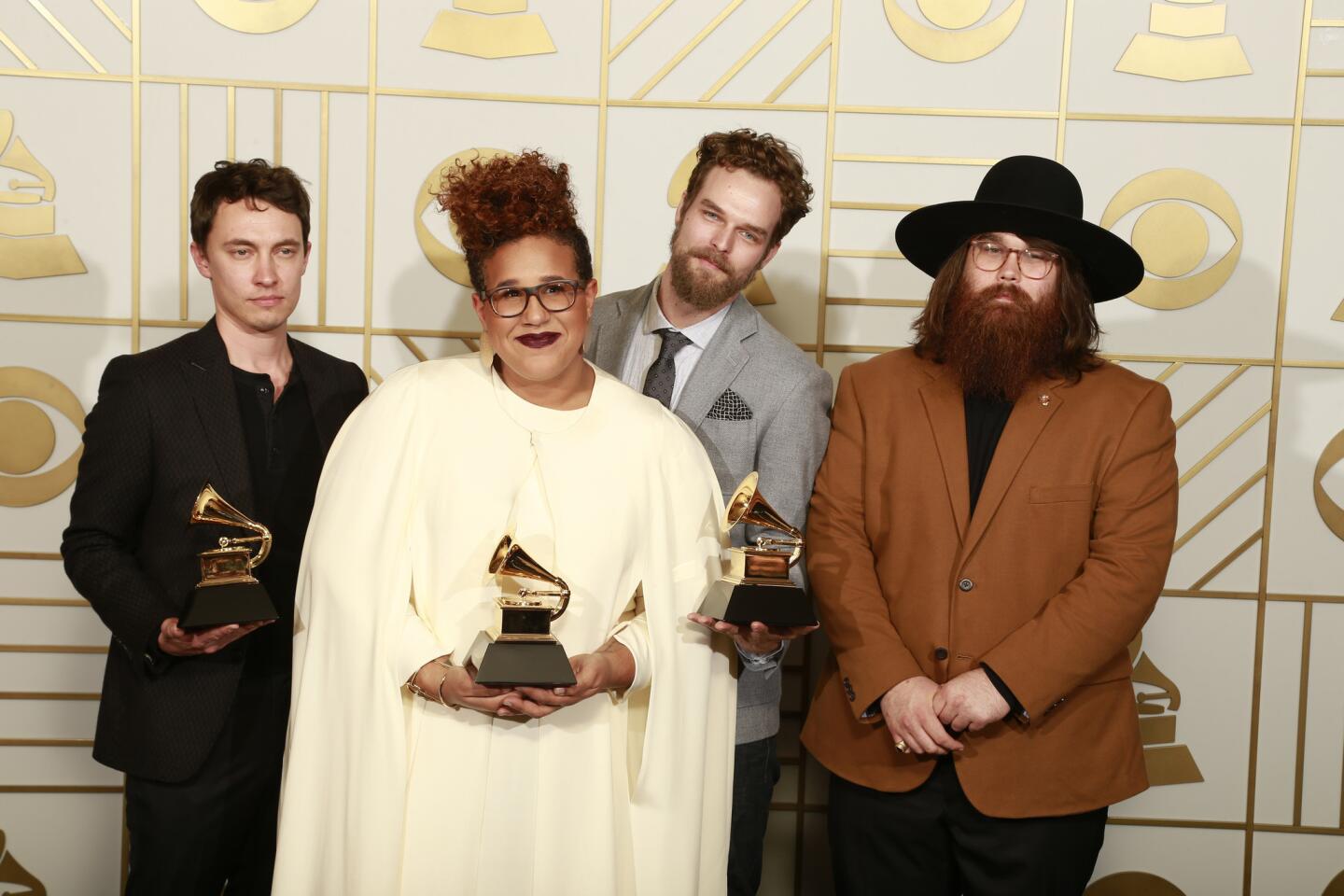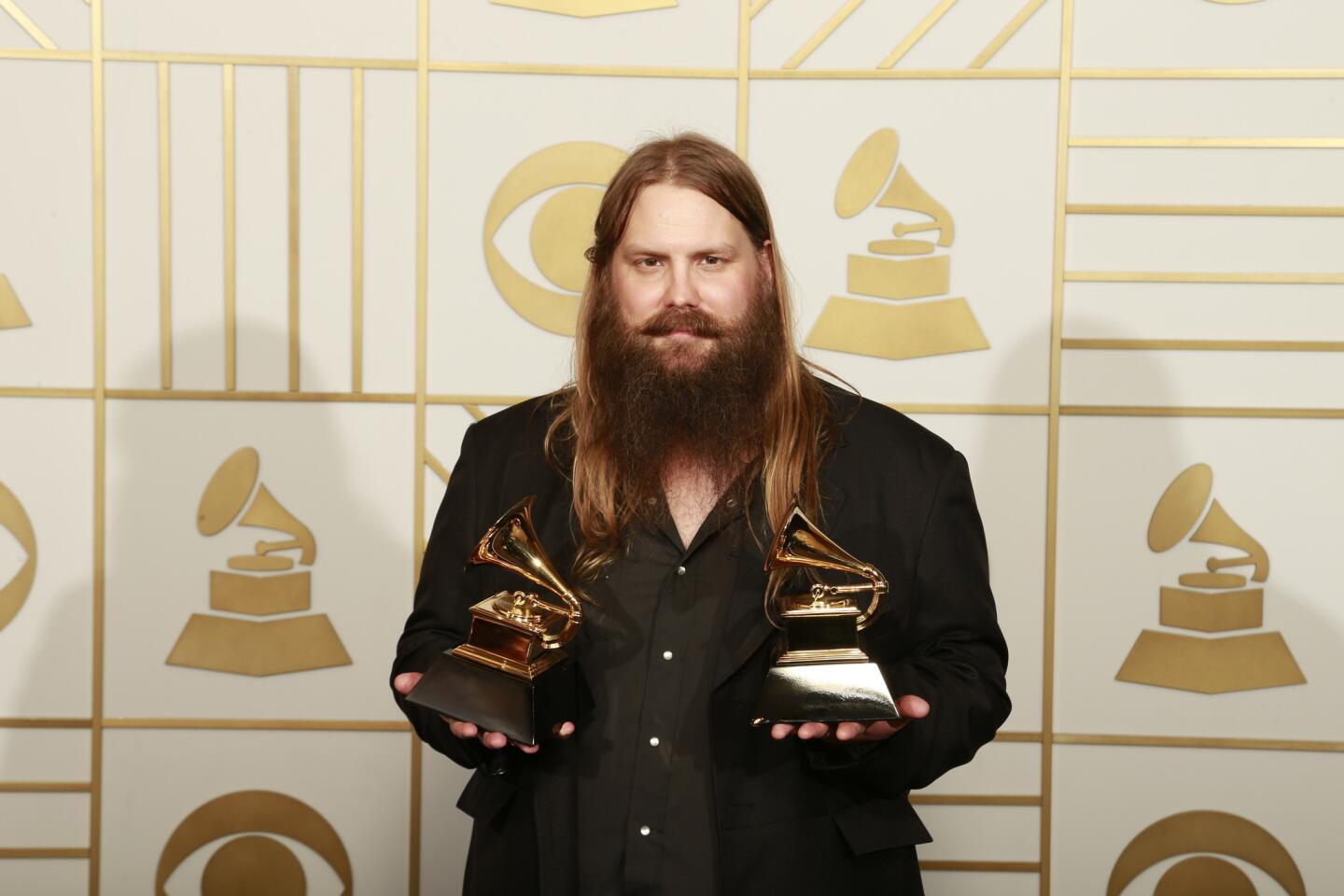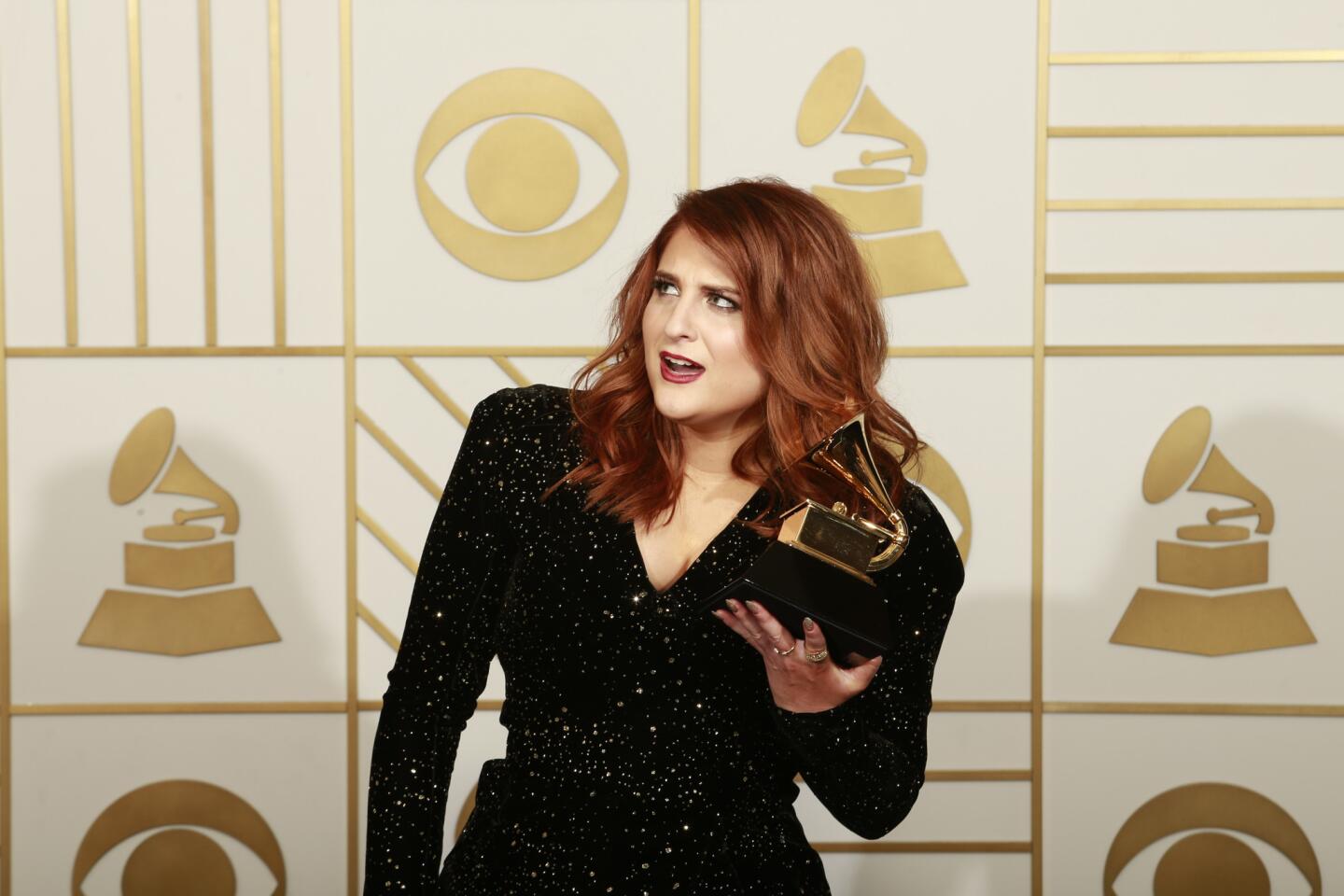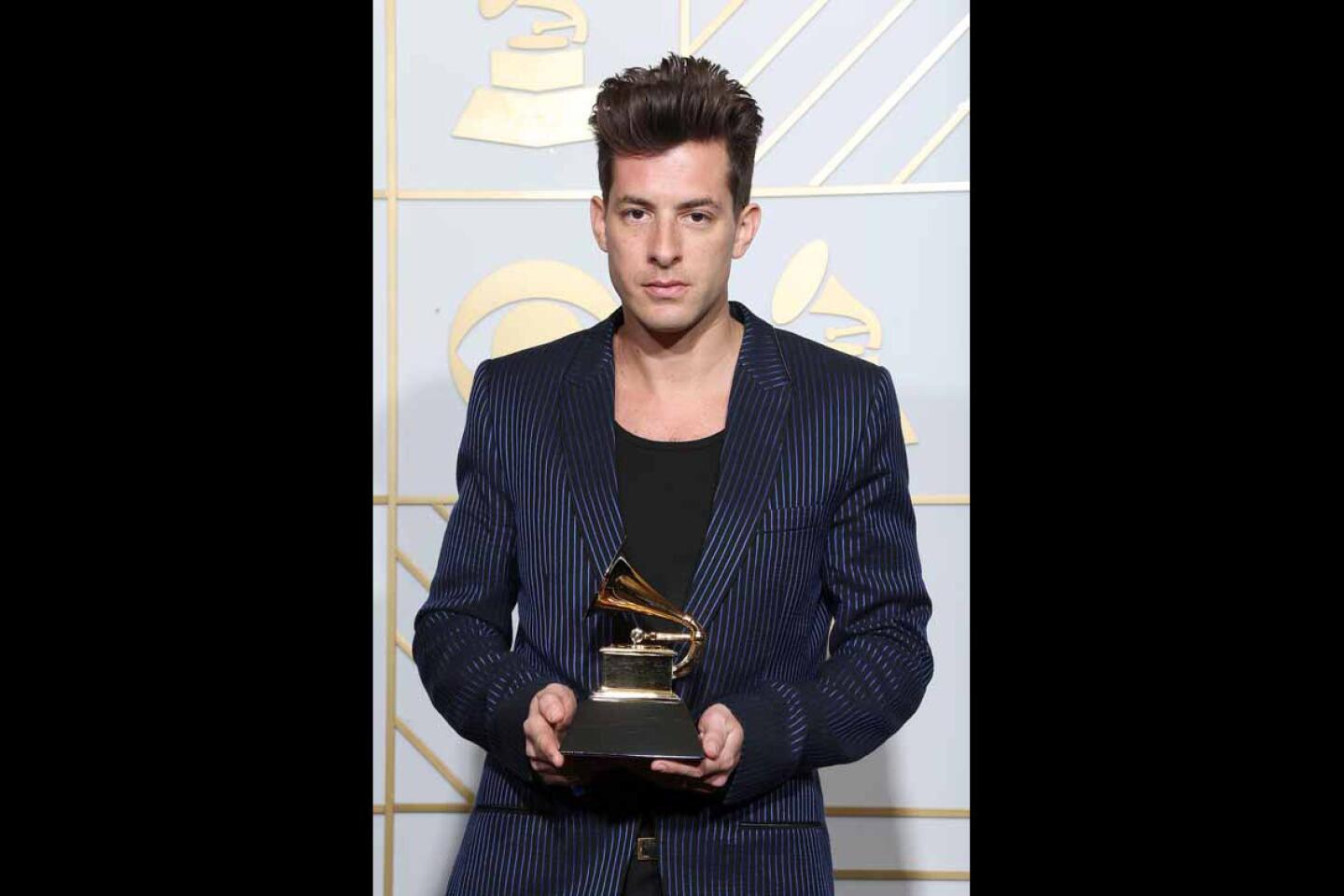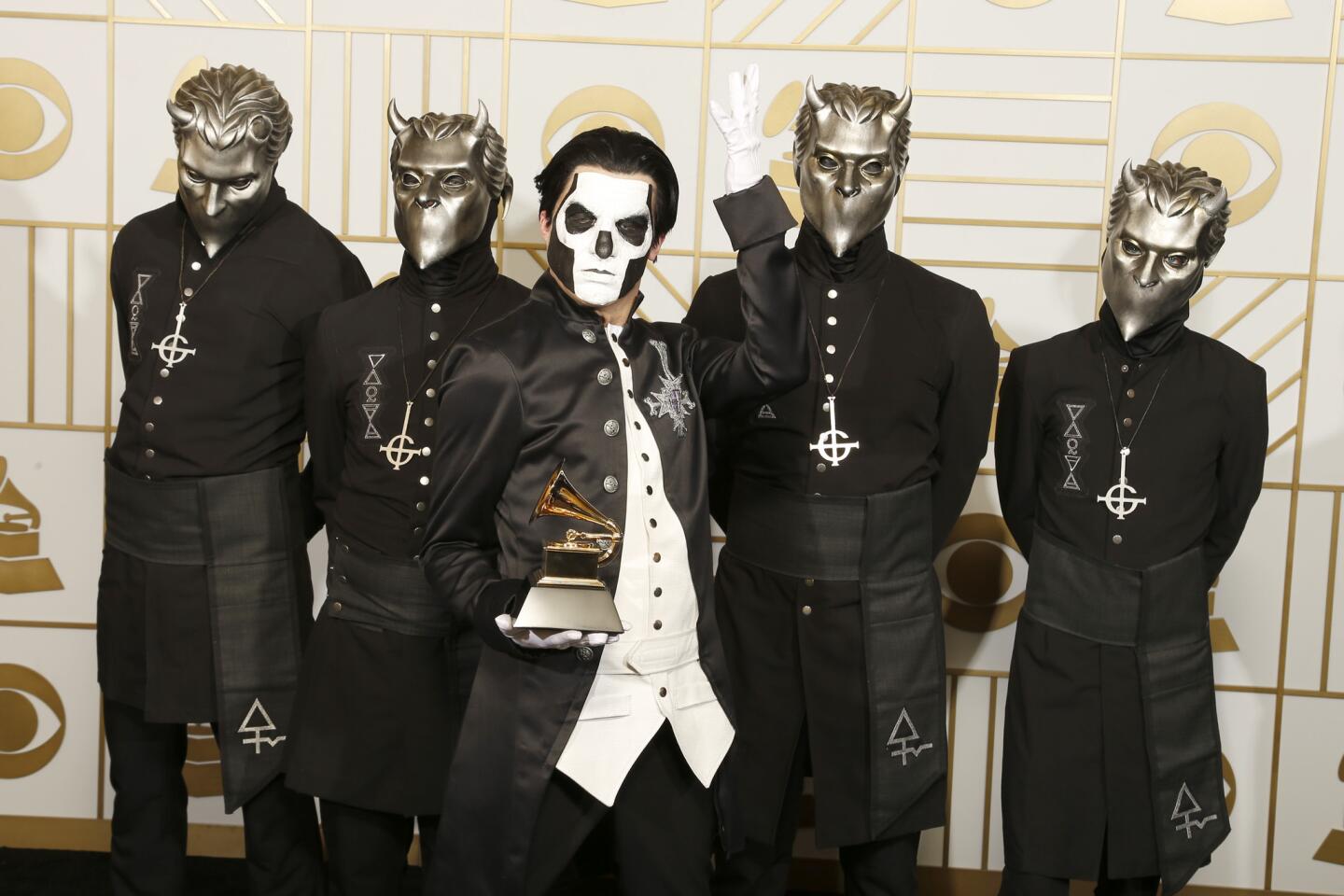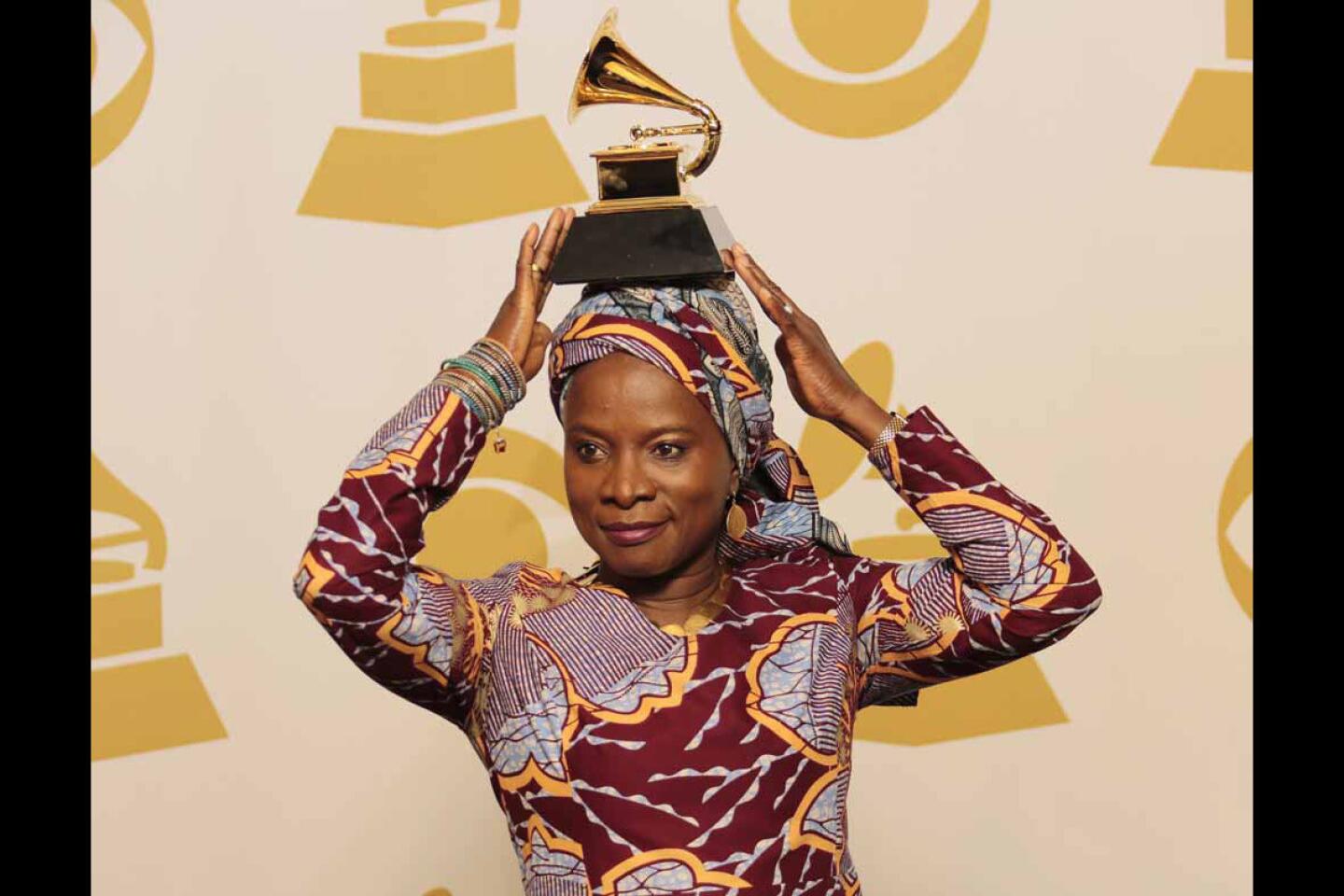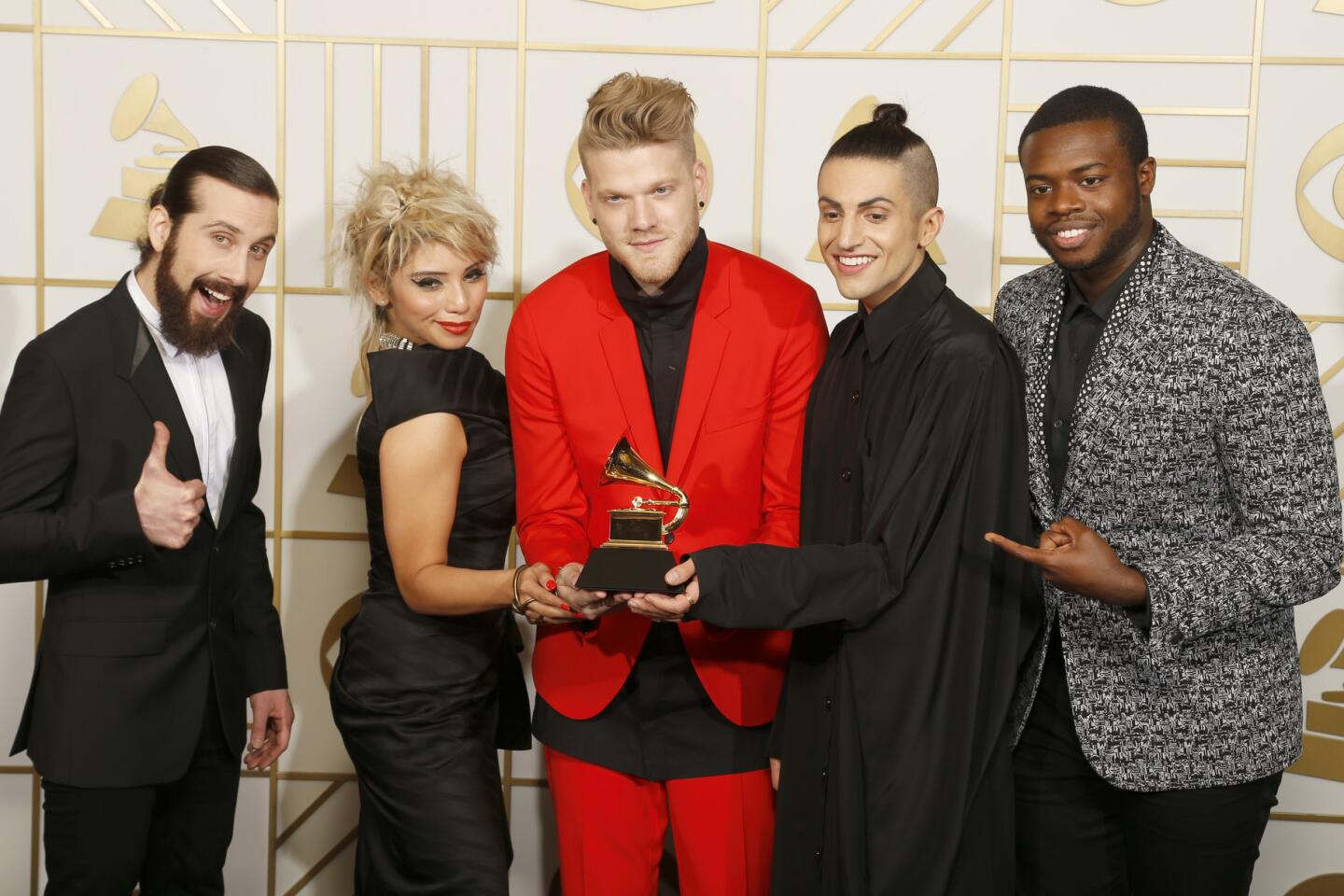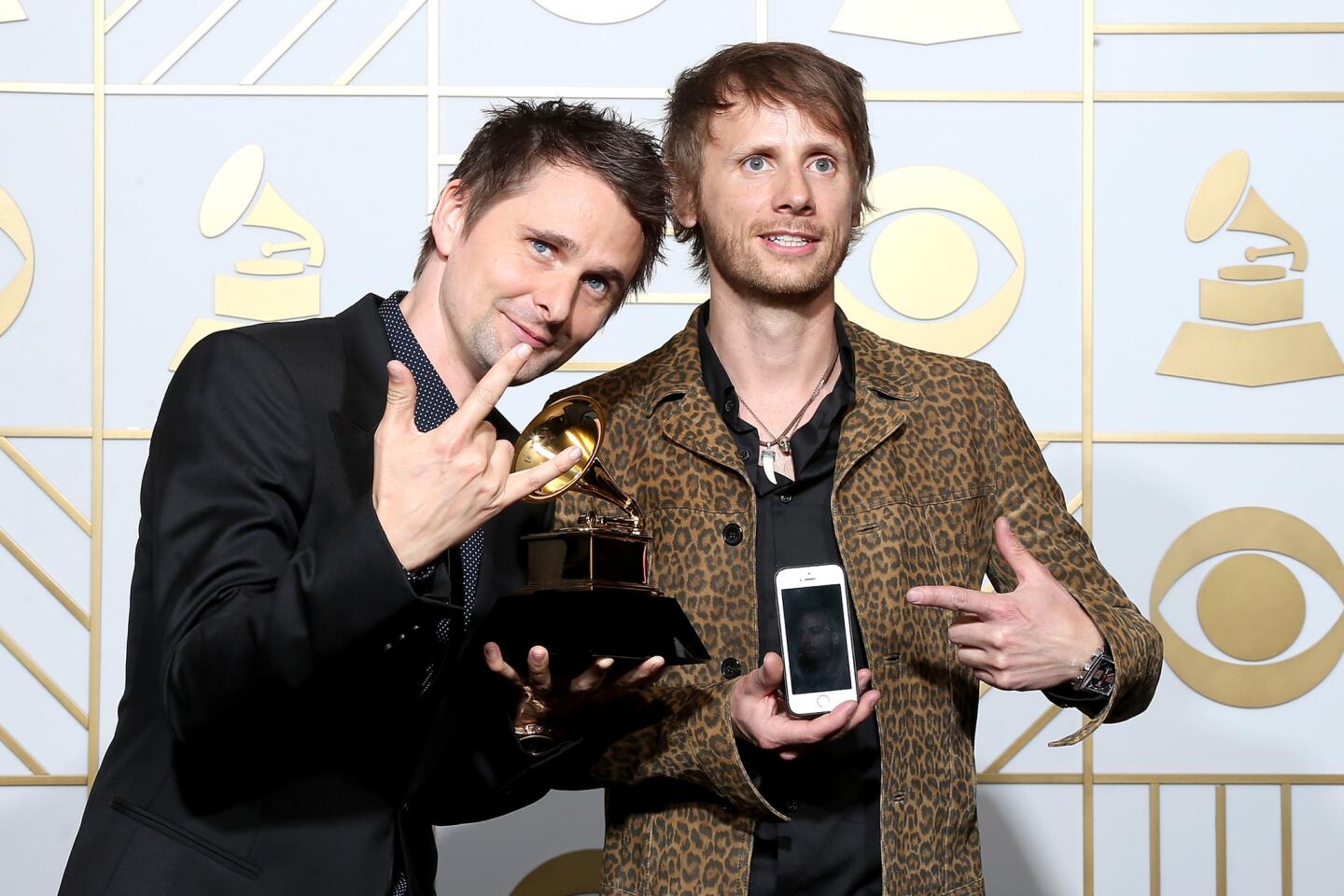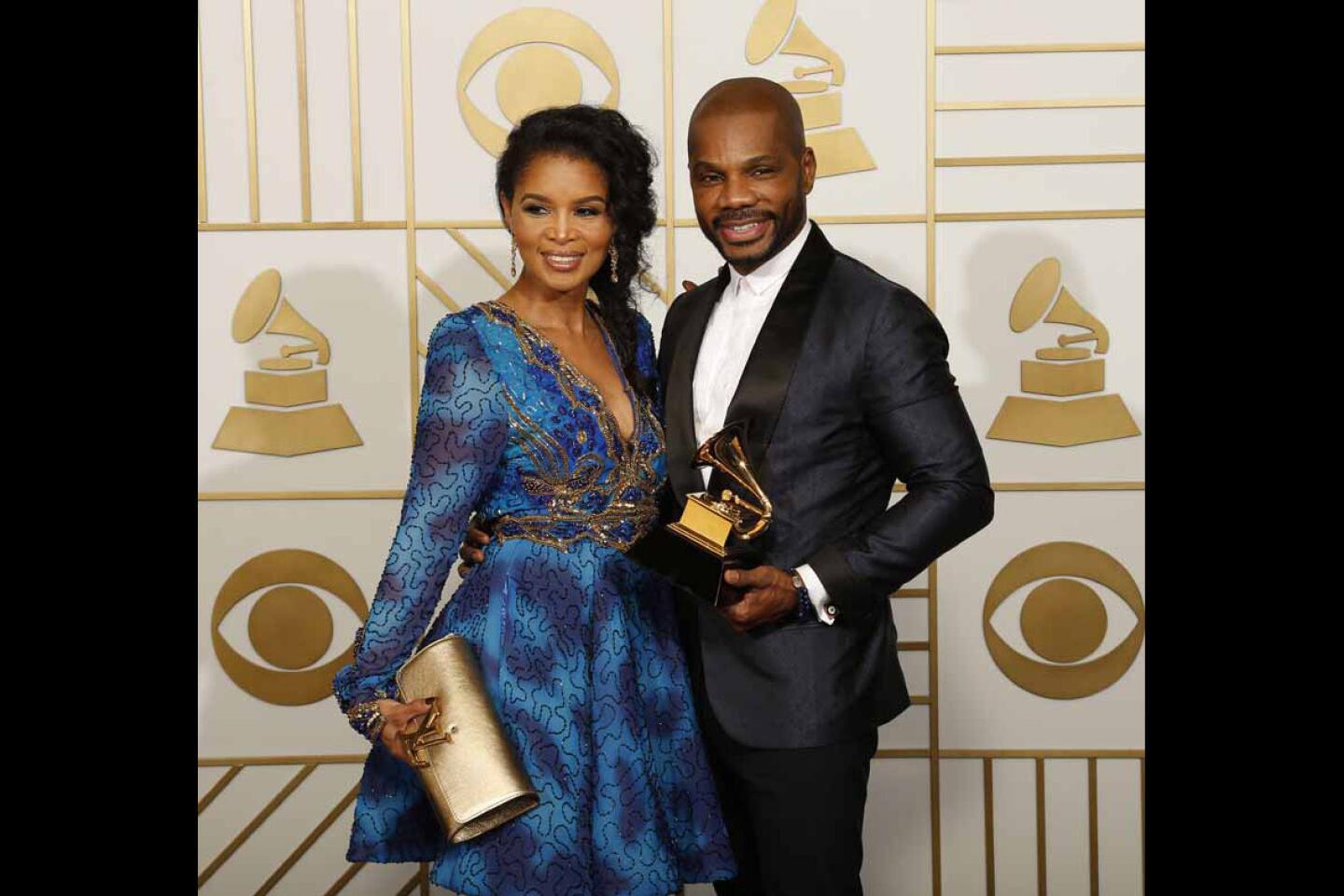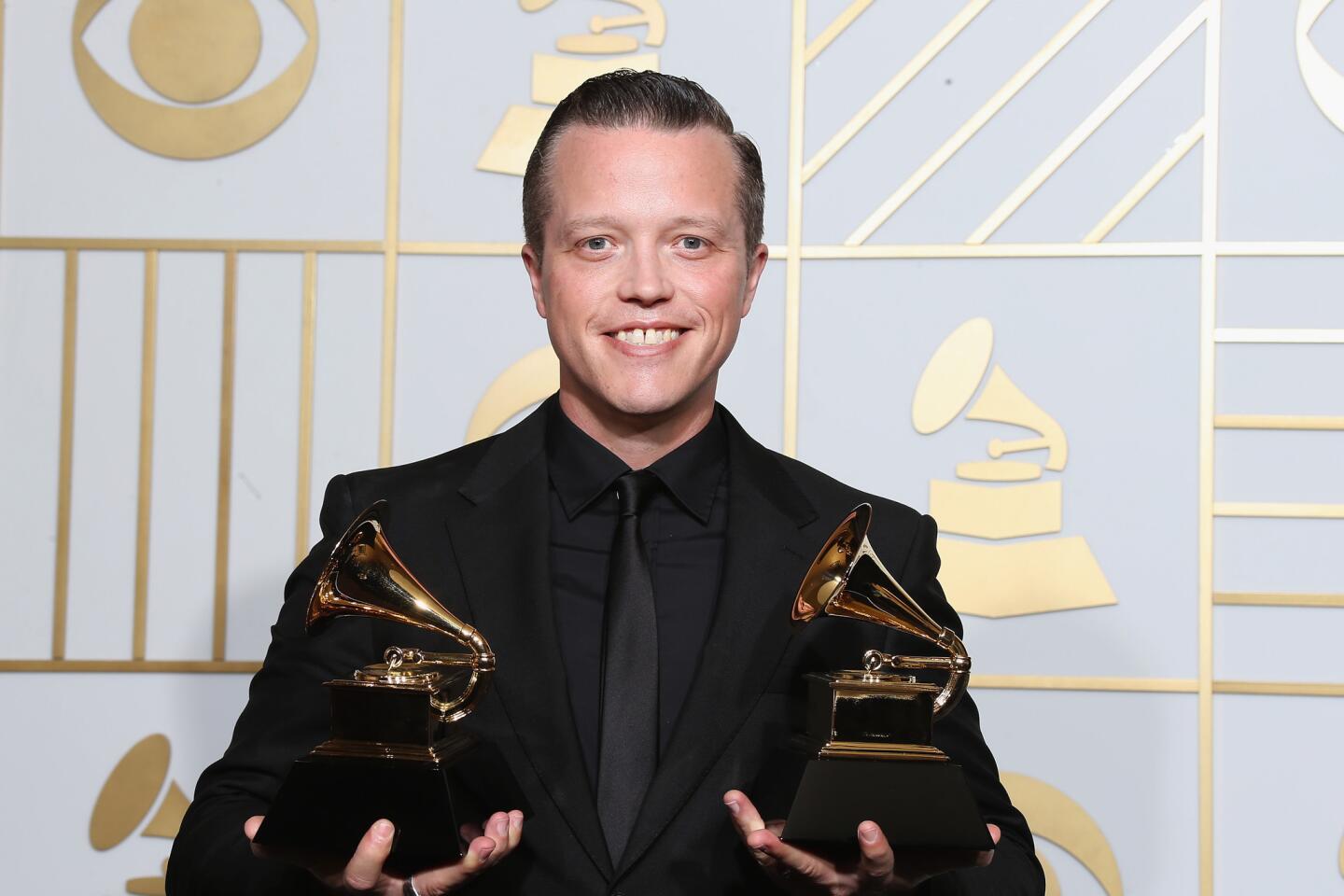Kendrick Lamar didn’t win the Grammy for album of the year, but he’s moving rap to a bigger stage
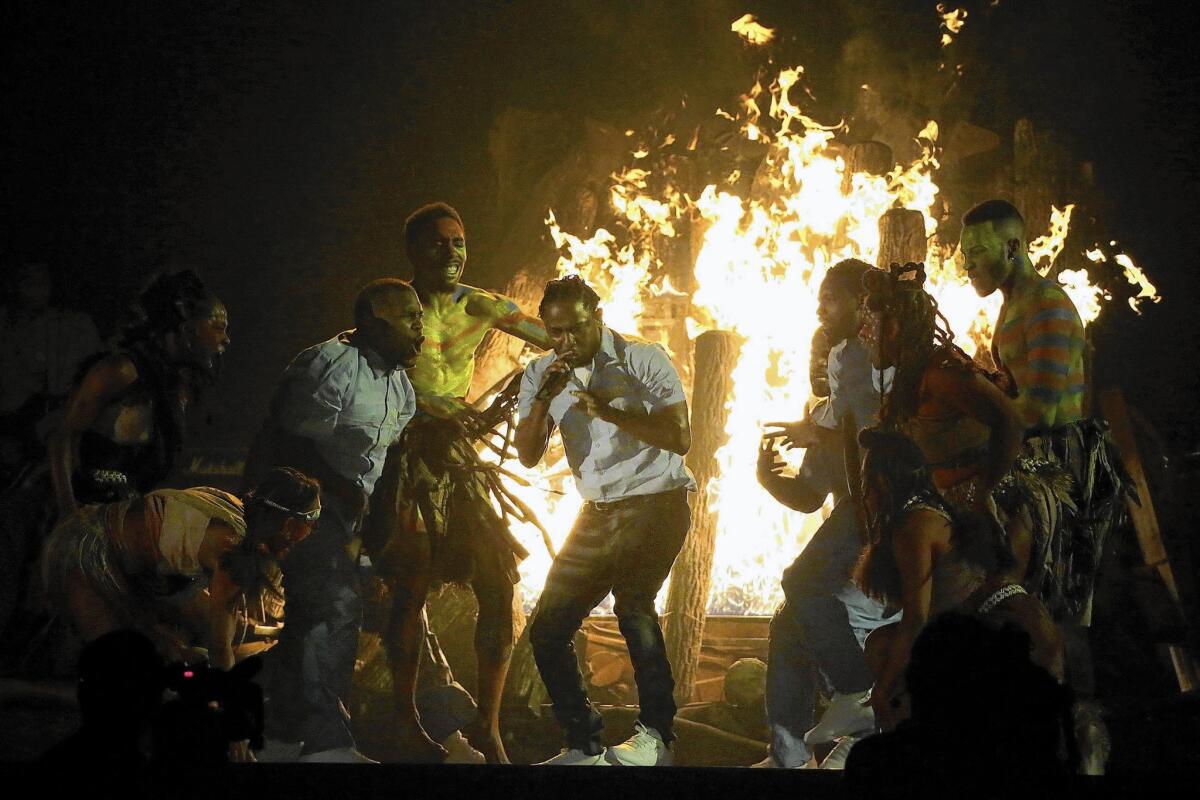
At the end of his emotionally charged performance at the 58th Grammy Awards, rapper Kendrick Lamar stood in front of a screen that projected an outline of Africa with his hometown, Compton, superimposed over the continent.
He rapped of police brutality and the shooting of Trayvon Martin in the most politically minded performance of the night, which included sets by pop’s Taylor Swift, crooner Adele and R&B’s Miguel.
Grammys 2016: Full coverage | Best and worst dressed | Red carpet | Show highlights | Nominees and winners | Top nominees
Lamar started the medley of “The Blacker the Berry” and “Alright” handcuffed, in a jail cell, driving home the topical nature of his album, “To Pimp a Butterfly.”
Lamar was the most nominated artist of the evening with 11 nods, but despite his album’s urgency, daring approach at breaking rap conventions and universal acclaim, it lost the night’s biggest honor — album of the year — to Taylor Swift.
Swift’s sparkly pop offering, “1989,” took the prize, making her only the second woman to win the award twice.
Though competition for album of the year was fierce — the Weeknd, Chris Stapleton and Alabama Shakes were also in the running — Lamar’s loss was in keeping with the Recording Academy’s history of shutting rappers out of the top honor. The last rap act to win that award was Outkast in 2004.
In 2016, a year in which the word “diversity” has been a hot topic in the wake of #OscarsSoWhite and when the conversation about race relations in the U.S. is as polarizing as it has ever been, Lamar’s album seemed poised to win big given its timely subject matter.
Lamar was awarded the televised ceremony’s first prize, rap album, which the 28-year-old artist accepted onstage. He won four other awards, including rap performance and rap song.
Despite being an integral portion of the music ecosystem since its inception nearly 40 years ago, rap has largely been overlooked in other major Grammy categories as well.
Lamar was also in the running for song of the year. Had he taken that award, it would have been the first time a rapper won the category. And for album of the year, the only other rap artists to win were Lauryn Hill and OutKast.
A win for album of the year would have also made the Compton-born emcee Lamar the first black artist to win since 2008, when Herbie Hancock accepted a tribute album of Joni Mitchell covers.
Lamar’s achievement would have been all the more impressive because he would have done so with “To Pimp a Butterfly,” a rap album so challenging and musically complex that fans and critics are still chewing on it nearly a year after its release.
His debut, “good kid, m.A.A.d city,” was famously snubbed at the 56th Grammy Awards (white rapper Macklemore won that year for rap album — and apologized publicly to Lamar). The album was a brilliant concept record that traced Lamar’s coming of age in gang-and-drug infested Compton; much of it conformed to the mores of a classic hip-hop album (beats that flipped from atmospheric to bouncy, masterfully poetic lyrics, ace guest collaborations).
“To Pimp a Butterfly” ignored much of a traditional framework. Weaving together free jazz, Parliament-Funkadelic era funk, spoken word, slam poetry and live instrumentation and lyrics that looked inward and outward at issues like fame and depression, politics, race, class and beyond.
His performance of tracks off the album at the Grammys on Monday was considered a highlight of the evening.
Unlike Lamar’s peers in mainstream rap — records by J. Cole, Nicki Minaj, Drake and Dr. Dre competed with him in the rap album category — “To Pimp a Butterfly” is a difficult listen that requires multiple listens to digest, and it celebrated blackness without apology.
As with the Oscars’ voting body, Grammys voters have also been accused of being too old, too white and too out of touch in their nominations.
It was a night that otherwise seemed to showcase rap culture with Ice Cube presenting and Run-D.M.C. being given the Lifetime Achievement Award, the first rap act to get such an honor. LL Cool J hosted, and the hip-hop inspired musical “Hamilton” got plenty of screen time. The musical got an early plug ahead of its beamed-in performance from Broadway, and it later won for musical theater album, given on-air seemingly to piggyback off its heat.
When Lamar won for rap album, he dedicated his award to all of hip-hop and to rap albums that came before him. The records he name-checked — “Doggystyle” by Snoop Dogg and “Illmatic” by Nas — also happened to be overlooked by the Grammys. No coincidence.
MORE GRAMMYS:
Who won, who lost, who performed
A more human Adele arrives at the Grammys
Lady Gaga goes Vegas with a rushed David Bowie tribute
Neil Portnow on Rihanna, Adele and what didn’t go as planned
Taylor Swift shames Kanye West in empowering Grammys speech
More to Read
The biggest entertainment stories
Get our big stories about Hollywood, film, television, music, arts, culture and more right in your inbox as soon as they publish.
You may occasionally receive promotional content from the Los Angeles Times.
